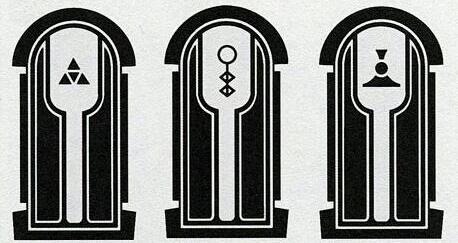
Ignorance, yet Knowledge
The second line of the Jedi Code, “Ignorance, yet knowledge” teaches us the importance of knowledge over ignorance. A Jedi's life is one of constant learning. One of the most dangerous things to be ignorant of is our own ignorance. It is important to be aware of what we do not know. This may present the classic Socratic paradox of knowing that we know nothing, but it is, in fact, the beginning of all knowledge. Once again, we rely on the pillars of Jedi strength (the Force, knowledge, and self-discipline) and self-examination to find areas where we are lacking so that we may address the lack. A further application of this line of the code is to allow ourselves to not become so certain of a thing, that we are not open to the idea that we may be mistaken. We may become aware of new evidence, or a new way of looking at something subjective. When this happens, not only is alright to change our views, it is the correct action to take. Rigidity of thought, and the attachment to what we believe can be a hindrance to learning and being able to obtain knowledge. A Jedi should be able to let go of many things and among them absolute certainty.
The belief that we cannot be wrong about a thing is not only harmful, it can be dangerous. It squelches the ability to respect a plurality of views in others. The road of absolute certainty leads to intolerance, which in turn leads to the suffering of others. If we keep in mind that we are connected to those around us through the Force, we must allow for others to seek their happiness even if it is a way that we would not seek it for ourselves.
Part of knowledge, or importantly self-knowledge is an awareness of the biases we carry within ourselves. Of the strongest of these is confirmation bias. This is when we become attached to an idea, and we pay attention to facts that confirm this idea while dismissing those facts that do not. Because of this, it is important for a Jedi to remain open to things that may change their mind. We need to be able to let go of our biases so that we may see the path before us clearly. We discover them through self-examination and meditation. While it may never be possible to rid one of all biases, we must continue to strive to be aware of them.
Because of our biases, we must be wary of the idea of being completely objective. Our life experiences color our perceptions, and we must strive for empathy when it comes to viewpoints that differ from ours. Many things beyond our control will contribute to our world-views, and to the world-views of others, we may encounter. While if an experience is different from what we know, our first instinct might be to dismiss it or look at it with incredulity. An empathetic response is to believe the related experiences of others, even if we did not experience it ourselves. It is in the recognition of the experiences and views of others, that we can engender compassion and empathy, and grow our knowledge about this world we share. We must be able to let go of our idea of how things are for us is how they are for everyone. This world is a diverse place, and while we may understand our place in it, we must be mindful of the place of others.
We overcome our ignorance by learning, by seeking out and acquiring new knowledge. We seek out not only facts but experiences, our own and those of others. Knowledge outside of our own experiences fosters a connection with those around us. When we step outside our ignorance, we realize our connection to all those around us, even those distant in both space and experience. It is through this connection, that we experience the Force not just from within ourselves, but in those we encounter and share this world with. We seek to improve ourselves with knowledge, and in so doing affect a positive influence in the world.


